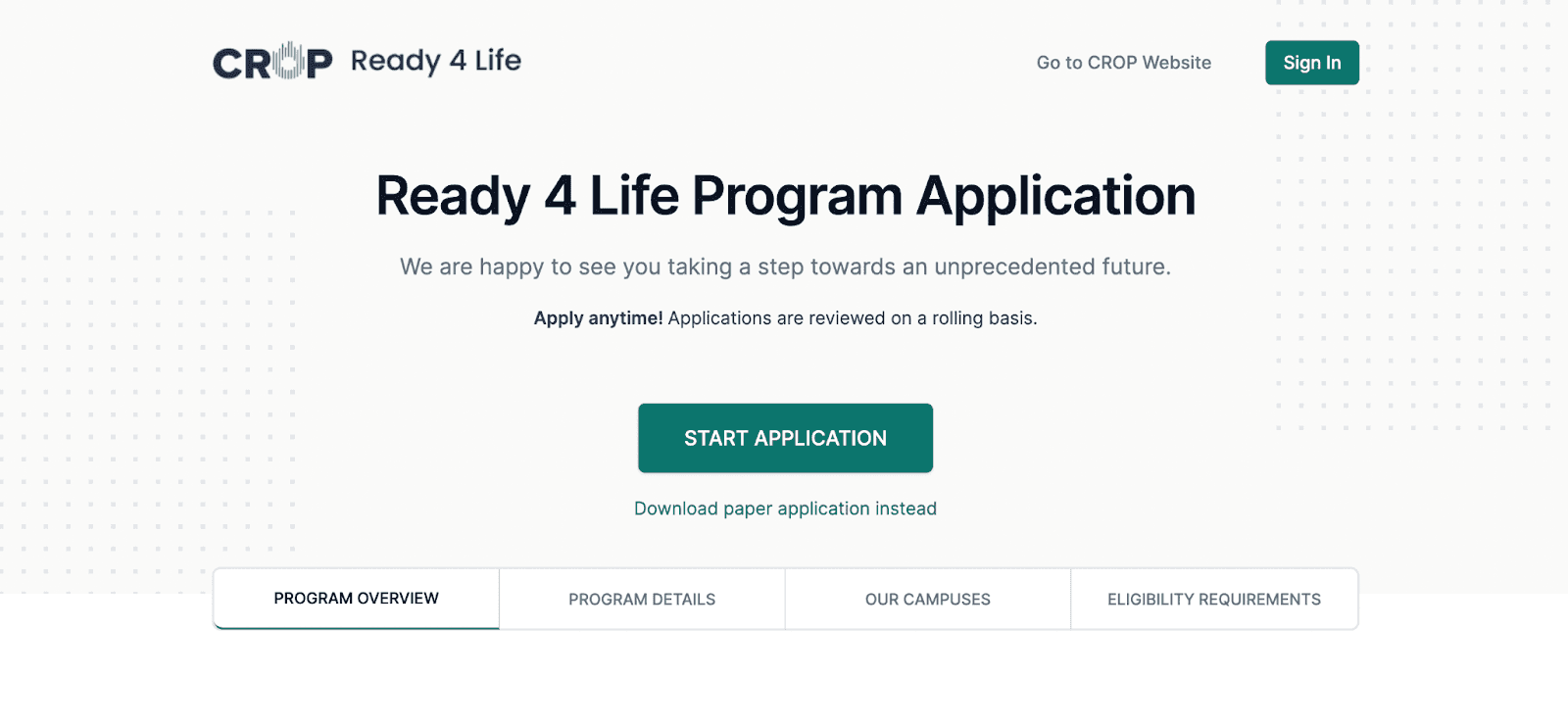Feb 10, 2022
Creating a Flexible Digital Infrastructure to Support CROP’s Ready 4 Life Reentry Program
We engaged with CROP in a multiple-stage partnership with their Ready 4 Life program. In Phase 1 of our partnership, we had two main tasks.
The first part was to build a data and analytics platform to facilitate the largest effort to streamline aggregated re-entry data and to centralize a database of re-entry resources in the state of California. With current re-entry data collection models and sources disjointed across the state, more flexibility was needed in the types of data collected and how it needed to be analyzed. Exygy needed to build infrastructure in preparation for their first cohort early in 2023 that would be dynamic enough to accommodate the ongoing data collection needs of the organization.
The second piece of Phase 1 was building out the application infrastructure. The application for the Ready 4 Life program needed to be digitized and include features like how to come back and save the application. It also needed to remain congruent with a legacy paper-based application used by applicants still within the incarceration system and therefore unable to use technology.
“Deciding to work with Exygy was an easy decision. After vetting several companies, we quickly recognized the Exygy team was best suited to meet CROP’s data technology needs. They listened intentionally, captured our vision, and began to prioritize our timeline. Throughout the discovery phase, they helped us understand complex technology terms so we could communicate exactly what our end product would look like. We couldn’t be more grateful to work with a more attentive team of software experts!”
- Terah Lawyer Harper, Executive Director
We began our approach with CROP by identifying the fundamental functionality required in Phase 1. With any massive undertaking that is split into multiple stages, we had to be incisive about identifying the most critical components while still holding space for wishlist items that could be developed in later iterations. Through this initial work with CROP, we identified the online application as the priority. All applications for previously incarcerated individuals were historically done through a paper-based system. We worked to convert the physical applications to a digital format while preserving all of the same information.
True to our mission of designing for inclusion, we worked with stakeholders in the design process of the new online application. As with all of our user research, we always give special attention to the individual needs of the stakeholders. We partnered with formerly and currently justice-involved people and participants in CROP’s pilot Ready 4 Life program.
While doing stakeholder research on the user end, we also worked closely with the CROP team to understand the emerging needs of their organization. Our team spoke to all actively involved team members working on the Ready 4 Life program to gather information about what would be helpful in the development of the program, what was essential, what data needed to be collected, and how data needed to be analyzed.
We worked in a parallel process of doing user research while simultaneously moving forward with engineering the necessary functionality of the project. The culmination of this work was a robust digital application for the Ready 4 Life program, and a backend database that is flexible, customizable, and easily exportable. With this foundation in place and the application launched for the first cohort, we are ready to move the iterative agile approach in the future development of CROP’s needs.
This work is vital to the long-term success of the Ready 4 Life program. With the new online application and data collection abilities, CROP will be able to better understand the success of the program. They will be able to measure things like participants' increase in quality of life and financial security. They will also be able to make data-driven decisions about how to adapt the program. Finally, with the numbers on their side, CROP will be able to prove the importance of the program for continued investment and support.
